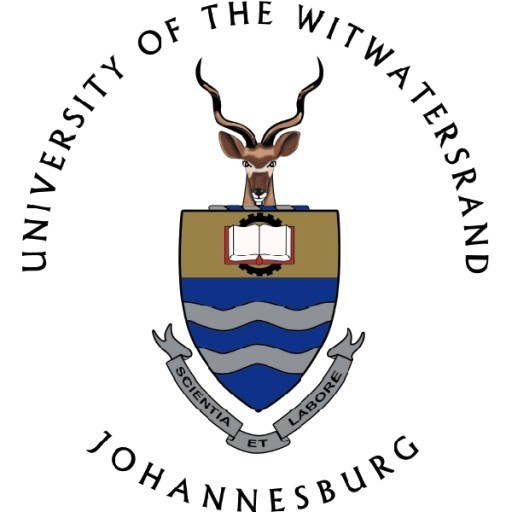The program forms part of a package of post graduate programs offered at UNSW Business School to fulfill the growing need and industry requirement for specialist training in financial preparation. It's designed to transcend the Australian Securities and Investment Commission's Regulatory Guide 146 (RG146) Tier 1 training requirements. The application empowers professionals and industry professionals to develop knowledge and skills not only in financial markets, financial planning, investment, and tax regulation and strategies, in compliance, risk management, professional and ethical behaviour also. A key purpose is to provide them with a good foundation to advance in the career of or innovative study in personal investment and financial advisory.
The Graduate Diploma in Financial Planning has been approved by the Australian Securities and Investment Commission (ASIC) as meeting the training requirements in Terms of Regulatory Guide RG146 Tier1.
Bachelor level or equivalent, with a credit average (65 percent or maybe more ) as determined by the UNSW Postgraduate Coursework Entry Calculator, plus the least 2 decades of full-time relevant work experience. Applicants need to supply a step by step resume (outlining relevant abilities and accomplishments ) and evidence of additional academic and professional qualifications.
Want to improve your English level for admission?
Prepare for the program requirements with English Online by the British Council.
- ✔️ Flexible study schedule
- ✔️ Experienced teachers
- ✔️ Certificate upon completion
📘 Recommended for students with an IELTS level of 6.0 or below.
Program: Bachelor of Commerce (Financial Planning)
Financing studies at UNSW Sydney typically involves a combination of government funding, scholarships, personal savings, and potentially student loans. Domestic students enrolled in the Bachelor of Commerce with a specialisation in Financial Planning may be eligible for financial assistance through the Australian government's Higher Education Loan Program (HELP), which includes schemes such as HECS-HELP, offering loans that cover tuition fees and are repaid through the tax system once income exceeds a certain threshold. International students are responsible for paying their tuition fees upfront or via institutional payment plans, as they are generally ineligible for Australian government funding.
UNSW Sydney offers a variety of scholarships to support students financially, including merit-based scholarships, equity scholarships, and scholarships for specific groups such as first-in-family or regional students. These scholarships can significantly reduce the financial burden associated with university studies. Furthermore, students are encouraged to explore external funding options and private scholarships available from government agencies, industry organizations, and philanthropic foundations.
Students often finance their studies through part-time employment, which is feasible due to the availability of student-friendly work hours and the university’s location in Sydney, one of Australia's major economic centers. Many students also utilize income from internships or part-time jobs related to their field of study to support their financial needs.
UNSW Sydney provides various financial planning resources, including budgeting workshops, financial advice, and guidance on managing student loans and personal finances. The university also offers payment plans that allow students to pay their tuition fees in instalments, easing the financial burden over the duration of their degree.
While the university's fees for domestic students are covered by government schemes, international students should consider additional costs such as overseas health cover, textbooks, accommodation, and living expenses, which require careful financial planning. Scholarships are competitive, and students are advised to apply early and maintain good academic standing to maximize their chances of receiving financial aid.
In conclusion, financing studies at UNSW Sydney involves leveraging government assistance programs like HELP for domestic students, securing scholarships, managing personal finances effectively, and exploring part-time work opportunities. Planning ahead and utilizing available university resources can help students manage their financial commitments and successfully complete their studies in Financial Planning.
The Bachelor of Commerce with a specialization in Financial Planning at UNSW Sydney is designed to equip students with comprehensive knowledge and practical skills in the field of financial advisory services. The program covers a broad range of topics including investment strategies, retirement planning, estate planning, taxation, and insurance, preparing graduates to provide personalized financial advice to clients. The curriculum integrates core business and commerce principles with specialized courses in financial planning, fostering both theoretical understanding and practical application.
Students enrolled in this program benefit from a combination of lectures, tutorials, case studies, and real-world simulations that enhance their analytical and decision-making abilities. The program emphasizes ethical considerations and regulatory compliance, ensuring graduates are prepared to meet the professional standards required in the financial services industry. Additionally, students have opportunities for internships and industry placements, which facilitate networking with industry professionals and provide valuable work experience.
UNSW Sydney’s program is accredited by relevant professional bodies, such as the Financial Planning Association of Australia (FPA) and the Australian Securities and Investments Commission (ASIC), ensuring that the qualification meets industry standards. Graduates of the program are well-positioned to pursue careers as financial planners, advisors, or analysts within banking, insurance, superannuation, and investment firms. The program also provides a solid foundation for further postgraduate study in finance or related disciplines.
The degree offers flexibility for students to tailor their study experiences through elective courses and participation in extracurricular activities related to finance and investment clubs. The program emphasizes critical thinking, ethical practice, and effective communication skills, which are essential for successful careers in financial planning. Overall, the UNSW Sydney Bachelor of Commerce (Financial Planning) aims to develop knowledgeable, ethical, and client-focused professionals ready to meet the dynamic needs of the financial services industry.







